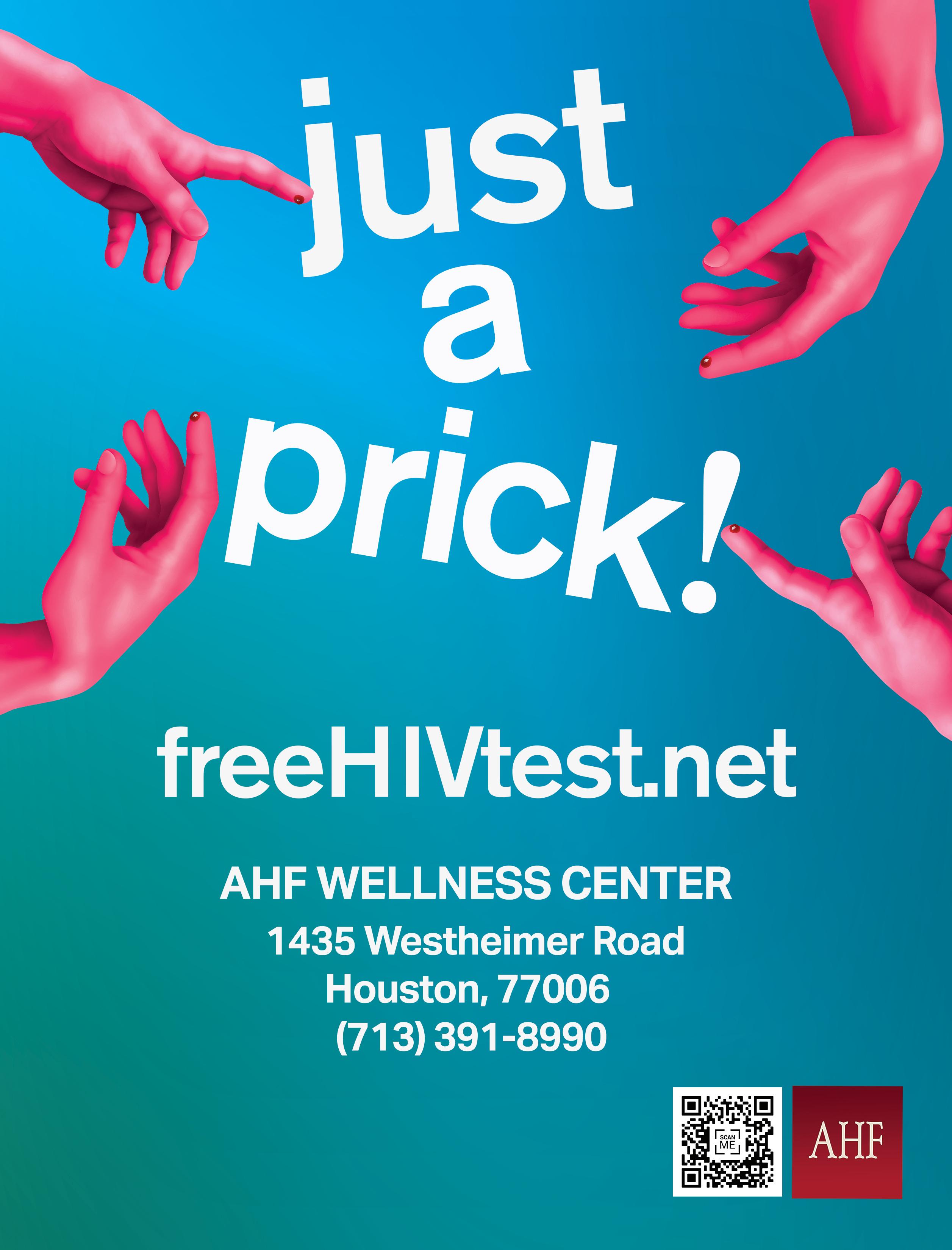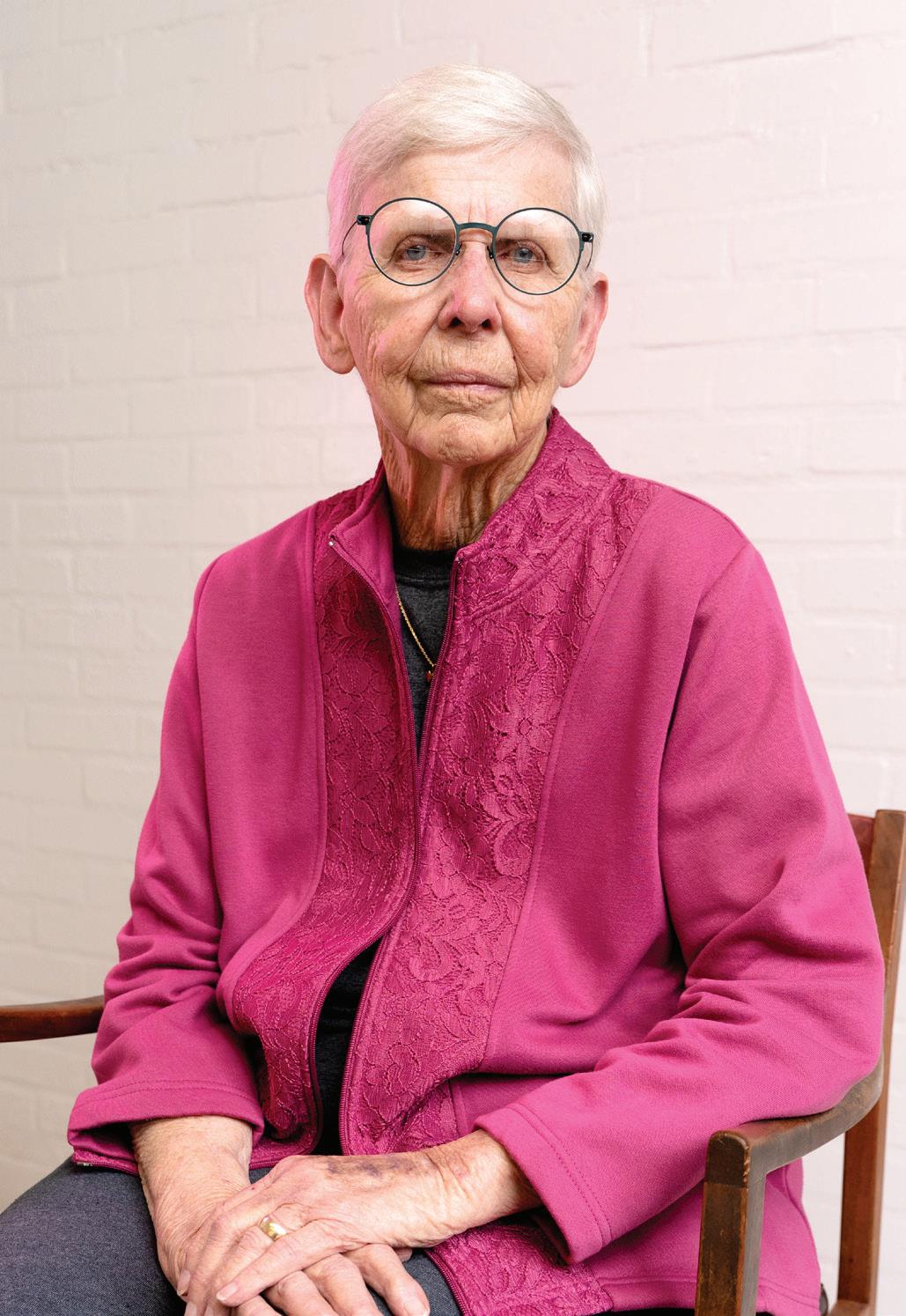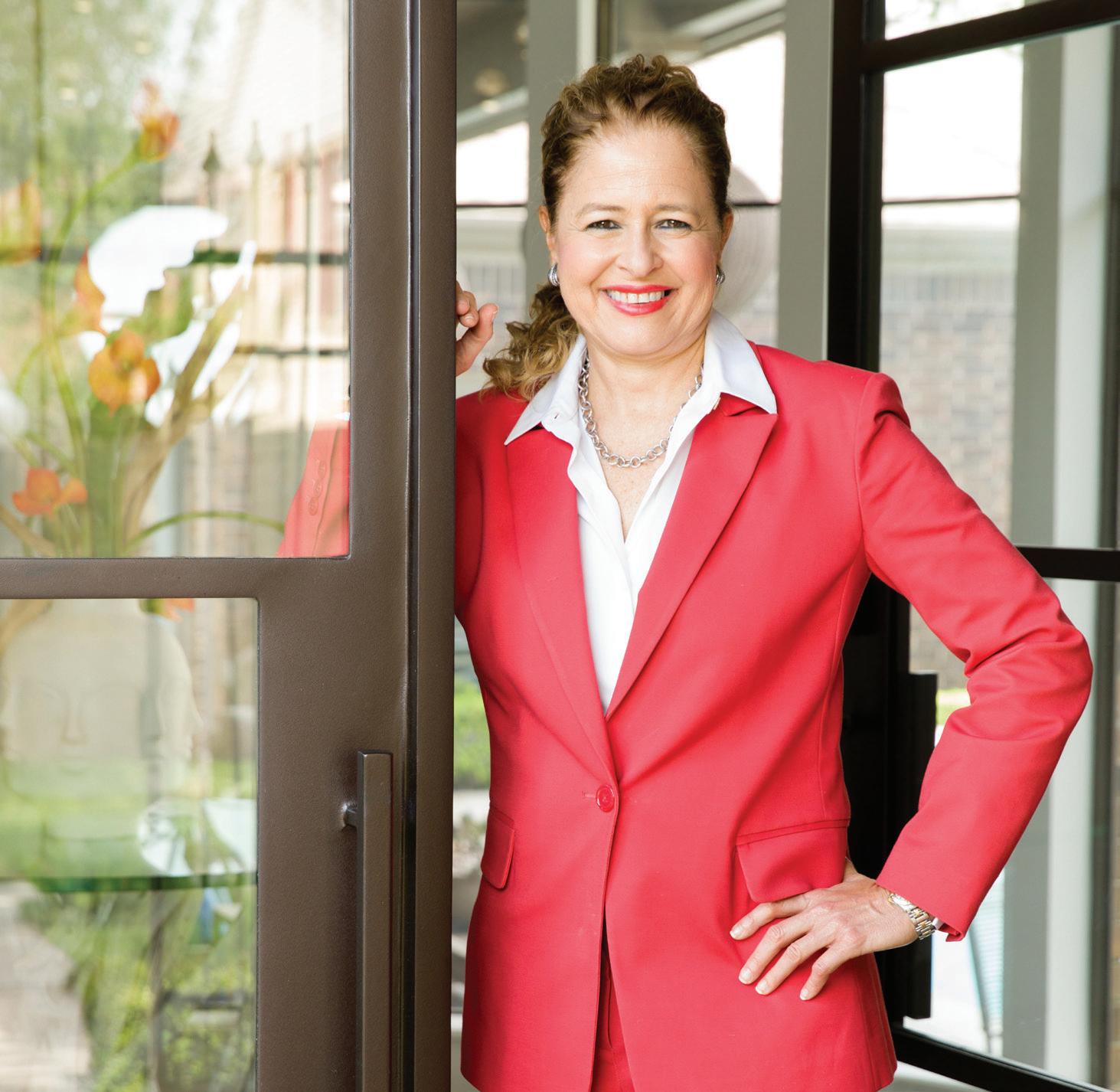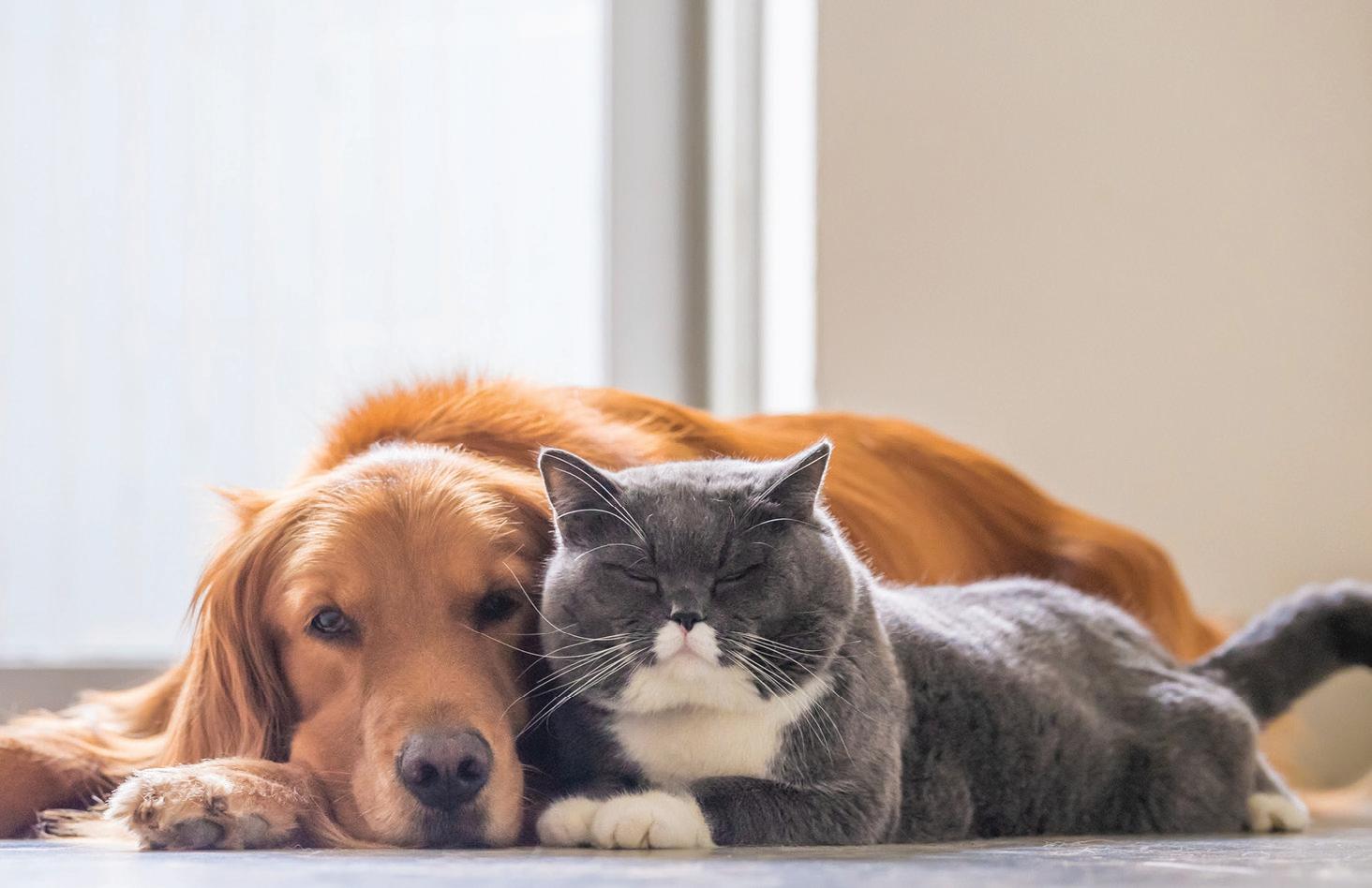
17 minute read
NEWS
from DECEMBER 2022
The memorial to the five Colorado Springs LGBTQ and ally murder victims.
On Saturday night, November 19, I turned to my partner, Alec, and asked if he wanted to go out. There was going to be a big gay dance party at a club in town. We don’t go out a ton these days at our age, but every once in a while we like to see a drag show, or dance with some shirtless men, or just be around other queer people. It’s good to charge your batteries by being among your own people, regardless of how old you are. Our community has a way of reinvigorating itself simply by being in close proximity to one another.
We didn’t end up going out.
The next morning, we got the news about the attack on Club Q in Colorado Springs—the place where Daniel Davis Aston, Derrick Rump, Kelly Loving, Ashley Paugh,and Raymond Green Vance were murdered, and several others injured, by a man with an AR-15.
Immediately, I flashed back to a similar morning on June 12, 2016, when I learned about the Orlando mass shooting at the Pulse nightclub where 49 people were killed and many more injured by a man with an AR-15. Then my mind was flooded with memories of all of the violence and murder that has been committed against queer people.
The murders of 375 trans people worldwide in 2021—the deadliest year for the trans community since the previous year, when 350 trans people were murdered.
The brutal 1998 murder of Matthew Shepard—a watershed moment for me, a closeted gay teen, that caused me to stay in the closet longer than I otherwise would have.
The 2014 murders of Britney Cosby and Crystal Jackson in Port Bolivar, Texas. They were a Black, lesbian couple who were beaten and shot by Cosby’s father. I remembered there being several other instances of murder and violence against lesbians in Texas around that time. Most reporting on it erased the queer identities of the women. But I knew.
The deaths of a generation of queer men during the AIDS epidemic, when politicians boasted that AIDS was “killing the right people”—a thought shared by what felt like everyone else in the world.
All of these sad recollections came to me on that November Sunday morning, but I wasn’t able to cry. I was numb. I turned to Alec and said, “It happened again.”
He said, “I know.” ➝
It Happened Again
The hate crimes will only solidify our determination to thrive.
By RYAN M. LEACH Photo by PARKER SEIBOLD/THE GAZETTE VIA AP
Daniel Aston, he/him Kelly Loving, she/her Ashley Paugh, she/her Derrick Rump, he/him Raymond Green Vance, he/him
We and all queer people everywhere understand the violence that we might encounter at any moment, around any corner. Whether we live our lives in spite of that or in fear of that, it traumatizes us all. This trauma manifests in many ways. Maybe we avoid holding hands in public. Maybe we deepen our voices. Maybe we try to present more “stealth.” Maybe we just say Fuck it, I am going to do whatever the fuck I want!
These are reactions to our collective queer trauma that our straight counterparts do not have to endure. It is part of our DNA as queer people to understand that violence is part of the package. Even if we grew up in the most affirming home in the most affirming neighborhood in the most affirming state, we know. We know that the violence will find us, even if it is in the Sunday paper, in a story about something that happened 1,000 miles away.
It goes without saying that this is unacceptable. Everywhere should be safe for all of us, whether we are in Club Q or Pulse, or in our places of worship or at school or in our homes. And yet, these are the places where we typically encounter the worst violent acts.
The blame is appropriately placed on the world that allows these massacres to happen. This includes politicians like Lauren Boebert, a Colorado congresswoman who is one of the most vocal in telling her followers that queer people are to be feared. The blame also lies with the media outlets that either erase us or mischaracterize us. Even the friendliest accounts of LGBTQ people manage to get it wrong most of the time.
There are many people and institutions to blame, but I know who the blame does not belong to: Us.
We have every right to live and love and be visible—whether we exist quietly or loudly. In rural towns or in urban cities. Whether we live in America, Iran, Russia, Canada, or the Galapagos Islands, we have a right to be there. We have a right to live. We have a right to be safe. Even if nobody else agrees with us. Living out and proud will always be our best weapon in this culture war—a war we did not start but are forced to fight and even die in.
We can’t escape the trauma or the violence, but we do have each other. And that will get us through. It always has, and it will be what saves us in the end. It has to.
Ryan Leach is a frequent contributor to OUTSMART magazine. Follow him on Medium at medium.com/@ryan_leach.
We didn’t just start caring about LGBTQ people yesterday. We’ve been doing it SINCE 1978.



recovery
affirming & affordable outpatient treatment for the LGBTq & hiv communities. 713.529.0037


Jean Arden Eversmeyer, 1931–2022
Houston’s LGBTQ community loses a pioneering activist and historian.
By SAM BYRD Photo by ALEX ROSA
Jean Arden Eversmeyer, known as Arden, left us on her final journey on November 14, 2022, in Houston, Texas.
Arden was the eldest daughter of the late Audrey Handeyside and Herbert Edwin Eversmeyer. She was born on April 4, 1931, in Stevens Point, Wisconsin. The family moved to Dallas in 1943. Arden was very close to her father, who passed away in 1954, leaving a large hole in her life. Over time, Arden and her mother became closer. Arden and her sister, Floi, cared for their mother until Audrey’s death, at 95, in 2004. Floi passed away, at 73, in 2005.
Arden earned a B.S. degree in health and physical education from Texas State College for Women in 1951, and a master’s degree in education from Sam Houston State University in 1964. She worked in Texas public schools for 30 years, teaching health, physical education, driver education, and serving as a secondaryschool counselor. She initiated the driver-education program in the Plano public schools in the early 1950s. Arden spent most of her career in the Pasadena and Houston Independent School Districts. She retired in 1981.
In the early 1950s, Arden met her first partner, Tommie Russum, at a softball game in Houston. Arden relocated to Houston to be with Tommie, and they had been together for 33 years when Tommie died of cancer in 1985. In 1987, Arden met Charlotte Avery; they were married in 2008. Arden and Charlotte traveled, worked, and loved together until Charlotte’s death on April 4, 2018—Arden’s 87th birthday.
Throughout Arden’s life, she was a community activist. After Tommie’s death, she focused on lesbian rights by building community and developing resources for lesbians, particularly the elderly. She served for six years as a mayoral appointee to the Houston Agency on Aging. In 1987, she founded Lesbians Over Age Fifty (LOAF), a unique social and friendship organization that now has about 150 members.
Concerned that the life stories of lesbians, particularly those born in the early decades of the 20th century, were being lost as those women aged and passed away, Arden founded the Old Lesbian Oral Herstory Project (OLOHP) in an effort to document and honor those life stories. OLOHP celebrated its 24th anniversary in 2022, having interviewed over 800 women. Arden personally interviewed over 200 older lesbians and co-edited two anthologies, A Gift of Age (2009) and Without Apology (2012), which contain excerpts from the collected interviews. Arden often said, “You don’t have to climb Mount Everest to be interesting. Everyone has an amazing story.”
Arden served on the steering committee of the national organization Old Lesbians Organizing for Change (OLOC) for 14 years—including 7 years as a co-director promoting social justice and equality for elderly lesbians nationwide. Arden’s efforts on behalf of older lesbians and the Houston LGBT community resulted in her being recognized locally as well as internationally. She has been featured multiple times in OutSmart magazine as well as in Texas Woman’s Magazine and US newspapers from Hawaii to New Jersey and Washington State to Florida. Arden’s honors and awards highlights include three proclamations from the City of Houston for community service through LOAF, OLOC, and the OLOHP; the Woman ➝

DEBBIE LEVINE KNOWS HOUSTON

Top Producer 2002-2021 713.870.4645
Debbie.Levine@sir.com
PASSIONATE. ACCESSIBLE. CLIENT-CENTRIC. A forward-thinking veterinary practice that cares for you like family.
Voted Best Male Veterinarian Eric Cagle, DVM

2625 Louisiana St. D100 713.903.2364 TheUrbanVet.com

Eversmeyer receiving a City of Houston proclamation from Houston Mayor Annise Parker.
Trailblazer Award from the United States Department of Energy; the Woman of Character, Courage and Commitment award from the National Women’s History Project in Washington DC; and the Bold Woman Award presented at the BOLDFest Conference in Vancouver. She was named Honorary Grand Marshal for the Houston Pride parade in 2017. Arden has also been a featured speaker at a Federal Deposit Insurance Corporation Pride Month celebration in Washington DC, and a room is named in her honor at Houston’s Montrose Center.
Arden established the Arden Eversmeyer Endowed Scholarship in Multicultural Women’s and Gender Studies at her alma mater, Texas Woman’s University, providing scholarship funds for a master’s or doctoral student in the school’s Multicultural Women’s & Gender Studies program. She donated her substantial library of lesbian books, music, videos, and memorabilia to the Texas A&M University library. She also donated significant LOAF archival records, as well as other activist materials, to the University of Houston. Arden’s impact will be felt by generations to come.
Arden is survived by a niece and nephew, three grandnieces, one grandnephew, five great-grandnieces, and many, many dear friends around the world whose lives she touched.
Memorials may be made to The International Documentary Association— OUTWORDS; PFLAG Houston; OLOHP; LOAF; OLOC; National Women’s History Project; the National Women’s Music Festival (Women in the Arts, Inc.) or your favorite charity.
A Celebration of Life gathering will be announced at a later date.

LONG-ACTINGPrEP



Reasons to ask your doctor about APRETUDE
APRETUDE is the first and only long-acting, injectable PrEP for reducing the risk of getting HIV-1 It’s an injection given every other month, instead of a pill you take every day Studied in HIV-1 negative cisgender men, transgender women, and cisgender women at risk of getting HIV-1
APRETUDE is given every other month by a healthcare provider after initiation injections have been given 1 month apart for 2 consecutive months. Stay under a provider’s care while receiving APRETUDE. You must receive it as scheduled. If you will miss a scheduled injection by more than 7 days, call your provider right away.

IMPORTANT FACTS ABOUT APRETUDE

This is only a brief summary of important information about APRETUDE and does not replace talking to your healthcare provider about your medicine. AP-reh-tood MOST IMPORTANT INFORMATION ABOUT APRETUDE
Important information for people who receive APRETUDE to help reduce their risk of getting human immunodefi ciency virus-1 (HIV-1) infection, also called pre-exposure prophylaxis or “PrEP”:


Before receiving APRETUDE to reduce your risk of getting HIV-1: • You must be HIV-1 negative to start APRETUDE. You must get tested to make sure that you do not already have HIV-1 infection. • Do not receive APRETUDE for HIV-1 PrEP unless you are confi rmed to be HIV-1 negative.
• Some HIV-1 tests can miss HIV-1 infection in a person who has recently become infected. If you have fl u-like symptoms, you could have recently become infected with
HIV-1. Tell your healthcare provider if you had a fl u-like illness within the last month before starting APRETUDE or at any time while receiving APRETUDE. Symptoms of new
HIV-1 infection include: tiredness; joint or muscle aches; sore throat; rash; enlarged lymph nodes in the neck or groin; fever; headache; vomiting or diarrhea; night sweats.
Please see additional Important Facts About APRETUDE at right.
Eligible patients may pay as little as a $0 co-pay per injection on prescribed APRETUDE.


While you are receiving APRETUDE for HIV-1 PrEP: • APRETUDE does not prevent other sexually transmitted infections.
Practice safer sex by using a latex or polyurethane condom to reduce the risk of getting sexually transmitted infections. • You must stay HIV-1 negative to keep receiving APRETUDE for
HIV-1 PrEP.
° Know your HIV-1 status and the HIV-1 status of your partners. ° Ask your partners with HIV-1 if they are taking anti-HIV-1 medicines and have an undetectable viral load. An undetectable viral load is when the amount of virus in the blood is too low to be measured in a lab test. To maintain an undetectable viral load, your partners must keep taking HIV-1 medicine as prescribed. Your risk of getting HIV-1 is lower if your partners with HIV-1 are taking eff ective treatment. ° Get tested for HIV-1 with each APRETUDE injection or when your healthcare provider tells you. You should not miss any HIV-1 tests. If you become HIV-1 infected and continue receiving APRETUDE because you do not know you are
HIV-1 infected, the HIV-1 infection may become harder to treat. ° Get tested for other sexually transmitted infections such as syphilis, chlamydia, and gonorrhea. These infections make it easier for HIV-1 to infect you. ° If you think you were exposed to HIV-1, tell your healthcare provider right away.
They may want to do more tests to be sure you are still HIV-1 negative. ° Get information and support to help reduce sexual risk behaviors. ° Do not miss any injections of APRETUDE. Missing injections increases your risk of getting HIV-1 infection. ° If you do become HIV-1 positive, you will need to take other medicines to treat
If you have HIV-1 and receive only APRETUDE, over time your HIV-1 may become harder to treat. ABOUT APRETUDE


APRETUDE is a prescription medicine used for HIV-1 PrEP to reduce the risk of getting HIV-1 infection in adults and adolescents who weigh at least 77 pounds (at least 35 kg). HIV-1 is the virus that causes Acquired Immune Defi ciency Syndrome (AIDS). It is not known if APRETUDE is safe and eff ective in children younger than 12 years of age or weighing less than 77 pounds (less than 35 kg).
DO NOT RECEIVE APRETUDE IF YOU:
• already have HIV-1 infection. If you are HIV-1 positive, you will need to take other medicines to treat HIV-1. APRETUDE is not approved for treatment of HIV-1. • do not know your HIV-1 infection status. You may already be HIV-1 positive. You need to take other medicines to treat HIV-1. APRETUDE can only help reduce your risk of getting HIV-1 infection before you are infected. • are allergic to cabotegravir. • are taking any of the following medicines: carbamazepine; oxcarbazepine; phenobarbital; phenytoin; rifampin; rifapentine.
BEFORE RECEIVING APRETUDE

Tell your healthcare provider about all your medical conditions, including if you:
• have ever had a skin rash or an allergic reaction to medicines that contain cabotegravir. • have or have had liver problems. • have ever had mental health problems. • are pregnant or plan to become pregnant. It is not known if APRETUDE will harm your unborn baby. APRETUDE can remain in your body for up to 12 months or longer after the last injection. Tell your healthcare provider if you become pregnant while receiving APRETUDE. • are breastfeeding or plan to breastfeed. It is not known if APRETUDE can pass to your baby in your breast milk. Talk with your healthcare provider about the best way to feed your baby while receiving APRETUDE. Tell your healthcare provider about all the medicines you take, including prescription and over-the-counter medicines, vitamins, and herbal supplements. Some medicines may interact with APRETUDE. Keep a list of your medicines and show it to your healthcare provider and pharmacist when you get a new medicine. You can ask your healthcare provider or pharmacist for a list of medicines that interact with APRETUDE.
Do not start a new medicine without telling your healthcare
provider. Your healthcare provider can tell you if it is safe to receive APRETUDE with other medicines.
POSSIBLE SIDE EFFECTS OF APRETUDE
APRETUDE may cause serious side eff ects, including:
• Allergic reactions. Call your healthcare provider right away if you develop a rash with APRETUDE. Stop receiving APRETUDE and get medical help
right away if you develop a rash with any of the following signs
or symptoms: fever; generally ill feeling; tiredness; muscle or joint aches; trouble breathing; blisters or sores in mouth; blisters; redness or swelling of the eyes; swelling of the mouth, face, lips, or tongue. • Liver problems. Liver problems have happened in people with or without a history of liver problems or other risk factors. Your healthcare provider may do blood tests to check your liver function.
following signs or symptoms of liver problems: your skin or the white part of your eyes turns yellow (jaundice); dark or "tea-colored" urine; lightcolored stools (bowel movements); nausea or vomiting; loss of appetite; pain, aching, or tenderness on the right side of your stomach area; itching.
• Depression or mood changes. Call your healthcare provider or get medical help right away if you have any of the following symptoms:
feeling sad or hopeless; feeling anxious or restless; have thoughts of hurting yourself (suicide) or have tried to hurt yourself. The most common side eff ects of APRETUDE include: pain, tenderness, hardened mass or lump, swelling, bruising, redness, itching, warmth, loss of sensation at the injection site, abscess, and discoloration; diarrhea; headache; fever; tiredness; sleep problems; nausea; dizziness; passing gas; stomach pain; vomiting; muscle pain; rash; loss of appetite; drowsiness; back pain; upper respiratory infection. These are not all the possible side eff ects of APRETUDE. Call your doctor for medical advice about side eff ects. You may report side eff ects to FDA at 1-800-FDA-1088.
GET MORE INFORMATION


• Talk to your healthcare provider or pharmacist. • Go to APRETUDE.com or call 1-877-844-8872 where you can also get
FDA-approved labeling. December 2021 APR:1PIL Trademark is owned by or licensed to the ViiV Healthcare group of companies. ©2022 ViiV Healthcare or licensor. CBTADVT220018 September 2022 Produced in USA.







